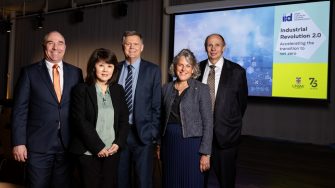Future thinking: UNSW’s Institute for Industrial Decarbonisation is driving green initiatives
Fossil resources are needed to produce products and services we all use every day – from cement and steel to plastic and fertiliser. But the demand for these goods is in direct competition with the global race to reduce emissions.

